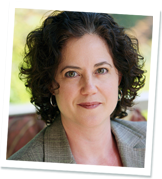Public Interest News Bulletin – July 29, 2011
By: Steve Grumm
This week: continued concern over drastic state funding cuts to Legal Services of New Jersey; five new appointees to the Georgia Public Defender Standards Council, and one of them is named “Gator”; speaking of under-resourced public defenders, there’s a new Justice Policy Institute report on just that topic; the debate over city funding to help Jacksonville Area Legal Aid; Jack McCoy is giving his troops a raise!; the brand-spanking-new Houston public defender’s office (How could a city that big wait so long?); a Florida legal services provider is one of the Sunshine State’s best companies to work for (Were salaries a criterion in this contest?); heavy stuff: legal services as a bridge connecting low-income communities to society; Connecticut public defenders feeling the pinch of strained resources; rockin’ out to benefit Lone Star State legal services providers (But why is my favorite Texan band, Centro-matic, not in the mix?); the Wake County, NC prosecutors pull double duty as receptionists; and an interview Keith Findley, founder of the Wisconsin Innocence Project, which has 16 exonerations under its belt.
- 7.28.11 – the Philadelphia Inquirer covers hearings across the Delaware about state funding cuts which will have a serious impact on Legal Services of New Jersey: “Two-thirds of those who contact Legal Services of New Jersey and qualify for its help are not being assigned lawyers because the agency doesn’t have the money to meet the demand, its president told legislators Wednesday. Melville Miller Jr. told an Assembly Judiciary panel examining state budget cuts that he expects to lay off 100 staff members, close at least three offices, and serve 10,000 fewer clients than last year because Gov. Christie cut the agency’s appropriation by $5 million for the budget year that began July 1. The cut comes atop a $9.7 million reduction last year. The total state appropriation for legal services for the year is $14.9 million, down by about half from two years ago.”
- The Press of Atlantic City’s editorial board chimed in on the funding cuts, and they’re not happy: “Christie didn’t just cut the $5 million for Legal Services that Democrats added to the $5 million in aid Christie had proposed in his own budget. The governor cut it all – $10 million – including the $5 million he was previously willing to give the agency. The only explanation for that, folks, is pure vindictiveness toward the Democrats, who had the gall to propose their own budget…. The deep cuts that Legal Services have endured over the last three years raise the question of what kind of nation we are. Do we want to create a nation where only the wealthy get legal representation?”
- 7.28.11 – Georgia’s Public Defender Standards Council, oft the subject of controversy, is getting five new members. One of them is named “Gator.” Yes! Here’s a blurb from the AP: “Georgia Gov. Nathan Deal has appointed five new members to join the board overseeing the state’s public defender system. Deal announced the appointments to the Georgia Public Defender Standards Council on Wednesday. The appointees are Donna Avans Seagraves, G.S. “Gator” Hodges, Lamar Paris, Ron Cross and David Sims. Seagraves is a veteran public defender who lives in Athens. Hodges is a Butts County commissioner and veteran police officer. Paris is a Union County commissioner, and Cross chairs the Columbia County Commission. Sims is a veteran trial lawyer who has worked in Savannah and Atlanta.” Here’s a bit more background on the five GPDSC appointees, courtesy of The Weekly.
- 7.27.11 – the Justice Policy Institute has released a new report, System Overload: The Costs of Under-Resourcing Public Defense, which looks at the troubled state of indigent defense programs nationwide: “Public defense systems serve millions of people in the United States every year. Yet many systems across the country have been in a state of ‘chronic crisis’ for decades. The defender systems that people must rely on are too often completely overwhelmed; many defenders simply have too many cases, too little time and too few resources to provide quality or even adequate legal representation. Ensuring that public defense systems have the resources necessary to provide quality representation to their clients can result in a more just system that reduces costs and incarceration and improves public safety and communities.”
- 7.26.11 – the New York Times reports that as the Manhattan District Attorney’s office works through some recent setbacks that have affected staff morale, it has made an announcement that is sure to produce some smiles: salary raises! The office, led by D.A. Cyrus R. Vance Jr., has recently faced some setbacks in high-profile cases. Also, since Vance took over for Robert M. Morgenthau, who served as D.A. for over 30 years, the office has experienced funding constrictions and layoffs. Managers in the office have been working on boosting morale. Well, raises probably aren’t a bad start.
- 7.26.11 – an update on the newly created public defender’s office in Houston. KUHF reports: “After being one of the last major cities without one, the Harris County Public Defender’s office was created for the purpose of representing mentally ill defendants facing misdemeanor charges, and appeals cases for the indigent…. The county launched the office with a $4 million dollar state grant, but with plans to eventually fund it for about $7 million dollars a year…. The public defender’s office should expand its caseload to include juvenile and felony cases within two years.”
- 7.26.11 – congrats to Community Legal Services of Mid-Florida! The organization has been named by the Florida Trend magazine as one of the Sunshine State’s best companies to work for. Here’s some coverage from theDaytona Beach News-Journal: “Agency Executive Director Bill Abbuehl, said ‘a committed and dedicated staff, one that will meet the demanding needs of nonprofit legal aid’s challenges, needs to be consistently made aware that they are needed and wanted and valued.’ The firm has 90 employees throughout Central Florida, including about 45 in Daytona Beach.”
- 7.21.11 – Corey Shdaimah, a professor at the University of Maryland School of Social Work, has authored Negotiating Justice: Progressive Lawyering, Low-income Clients, and the Quest for Social Change. On the American Constitution Society’s website, Shdaimah previews Negotiating Justice, in which he interviewed 11 legal services lawyers and 30 clients: “Perhaps as important as [direct representation of clients’ interests] is the need for solidarity at a time when our societal divisions are growing. The interests of an ever-smaller group at the top are set against those who struggle as more people lose their jobs, their homes, and their savings…. Legal services programs sit on that divide; legal services lawyers, most of whom graduated elite law schools, choose to work directly with communities in need. Providing day-to-day legal services requires interactions between lawyers and clients. For clients, this means not feeling entirely abandoned by government agencies and society at large.”
- 7.21.11 – Connecticut public defenders, facing deep cuts, are concerned that they may not be able to meet ethical and constitutional obligations with ever-growing caseloads. Boston.com reports on the growing fears of state public defenders. “If the caseloads are too big, our people cannot spend the time they need to spend on a case and with their clients,’’ said Deputy Chief Public Defender Brian Carlow. “Our biggest initial concern is cases not moving as quickly as they can when people are locked up.’’
- 7.24.11 – Business News reports that legal aid providers in Texas have come up with a loud and fun way to raise funds for legal services. Seven bands, composed exclusively of area judges and lawyers, will rock out on August 20th in Dallas. Ticket information and more details are available here.
- 7.19.11 – In Raleigh, NC, WRAL reports that attorneys in the Wake County DA’s office are pulling double duty- as lawyers and secretaries- as a result of budget cuts that have forced drastic reductions in staffing. ” ‘I have some of the most skilled lawyers in this county who are answering telephones on a daily basis, because somebody has to answer the phones – and we have to share that duty,’ said Wake County District Attorney Colon Willoughby. ‘We’re pinched. Each day, it’s robbing Peter to pay Paul’.”
- 7.24.11 – From Madison.com, an interview Keith Findley, founder of the Wisconsin Innocence Project. Since 1998, the initiative has helped free 16 people who were wrongly imprisoned, and today has expanded to issues such as improving compensation for public defenders.
Permalink Comments off



























































































